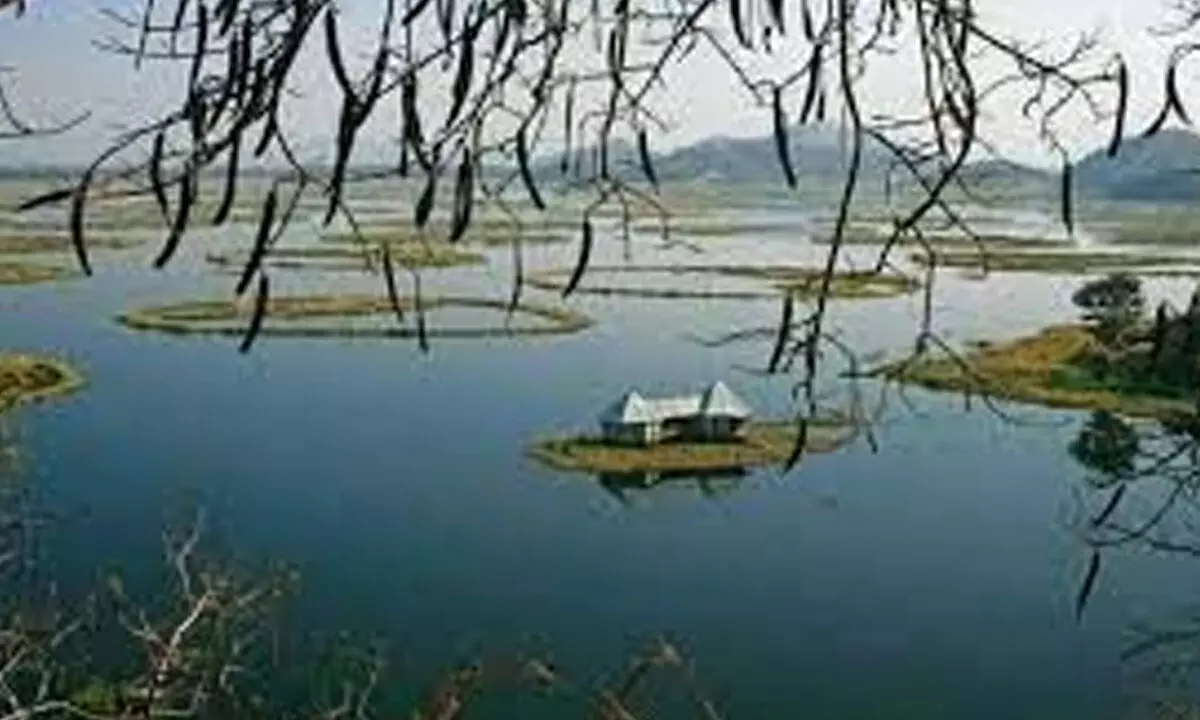NE India’s largest freshwater body hit by illegal acts

Even as Manipur is battling with protracted ethnic violence, the Loktak Development Authority (LDA) and the fishing community that is facing the impact of indiscriminate hunting of waterfowl and the illegal use of the electric shock method for fishing, has made an appeal to the public to emerge as responsible guardians of this invaluable natural resource.
Imphal: Even as Manipur is battling with protracted ethnic violence, the Loktak Development Authority (LDA) and the fishing community that is facing the impact of indiscriminate hunting of waterfowl and the illegal use of the electric shock method for fishing, has made an appeal to the public to emerge as responsible guardians of this invaluable natural resource.
Famous for its floating islands and picturesque landscape, Loktak Lake in Manipur’s Bishnupur District is one of the largest freshwater bodies in northeast India. Three of northeast India’s most important ecosystems - Rudrasagar Lake in Tripura, Deepor Beel in Assam and Loktak Lake in Manipur are categorised as wetlands of international importance under the Ramsar Convention.
Held in February 1971 at Ramsar in Iran, the Ramsar Convention provides the framework for national action and international cooperation for the conservation and sustainable use of wetlands and their resources. Loktak Development Authority (LDA) Chairman, Asni Kumar Singh, said that encompassing an area of about 26,000 hectares and being the state’s fishery resource, the lake is not just a source of livelihood but a goddess to the people of Manipur and a mother to the fisher community. It is the cradle of Manipuri civilisation and culture.
Appealing to the communities dwelling around Loktak Lake, Asni Kumar Singh has asked them to discontinue the illegal use of the electric shock method of fishing and illicit hunting of waterfowl and endangered species of migratory birds by using firearms. Emphasising the ecological, socio-economic, and cultural significance of Loktak Lake, Asni Kumar Singh highlighted its pivotal role as a cradle of Manipur’s civilisation. He stressed that this natural treasure isn’t just a body of water but an integral part of the region’s identity, woven intricately into the fabric of its existence.
Expressing grave concern about the adverse effects of illegal fishing and hunting on the fragile balance of the lake’s ecosystem, the LDA Chairman sincerely urged the public to emerge as responsible guardians of this invaluable natural resource. His plea resonated with a call for collective environmental responsibility, urging citizens to understand that resorting to the use of electric shock in fishing and the illegal hunting of waterfowl not only poses a serious threat to the biodiversity of Loktak Lake but also violates established laws. He emphasised the consequences of such actions that not only harm the environment but also undermine the relentless efforts of the state government towards the conservation and preservation of Loktak Lake’s natural heritage.
Expressing concern over the dwindling fish populations impacting the livelihoods of Loktak fishers, the ALLAFUM secretary, Oinam Rajen Singh, condemned the recent trend of nocturnal fishing using LED lights. He said this practice not only leads to overfishing but also disrupts the feeding grounds of migratory water birds arriving between October and February annually. The Manipur Loktak Lake (Protection) Act, 2006 was enacted by the Manipur Assembly with the objective of conservation and preservation of the lake.
Under the Act, the lake is divided into three zones in which the core zone is prohibited from all kinds of activities which would affect its biodiversity and water quality. Loktak, the largest freshwater lake in the northeast, is also one of the major tourist attractions of eastern India.














